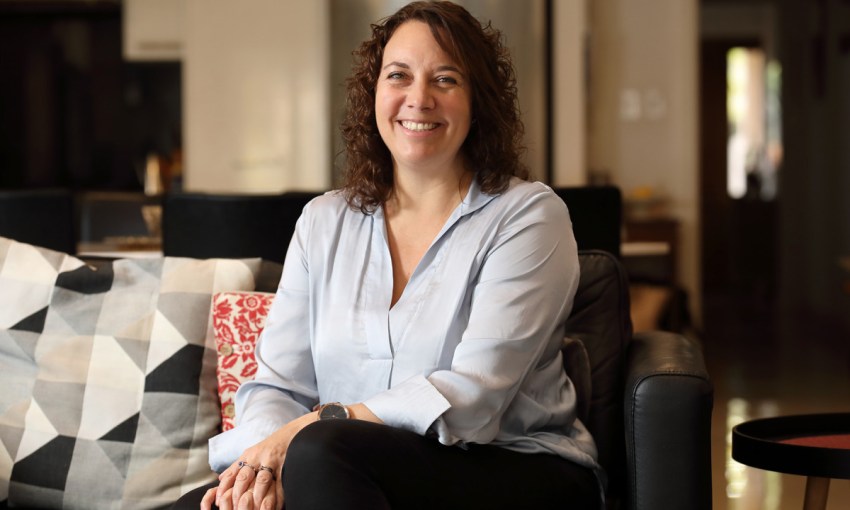Jane Russo is the kind of person who can’t sit still for too long. The City of Unley councillor accepts all challenges head on, and this persistence has been on show when campaigning for a cause close to her heart – awareness for the rights of transgender and non-binary young people.
“I don’t want people to be fearful about what they don’t know”
Where did you grow up?
I’m Adelaide born and bred. On the whole, I think I was a very active and engaged child. I loved primary school and learnt quickly that you needed to give everything a go, and that if the boys could do it, I could do it too, and better. My love for running was born with an amazing teacher who gave me the passion and desire to run, and stay fit and healthy. I played lots of sport but enjoyed basketball the most. I was involved in Girl Guides and Scouts (including Adelaide Gang Show and as a Guide Leader) and I achieved the Queens Guide Award, the Bronze, Silver and Gold Duke of Edinburgh Awards and the Royal Surf Life Saving’s Bronze Medallion.
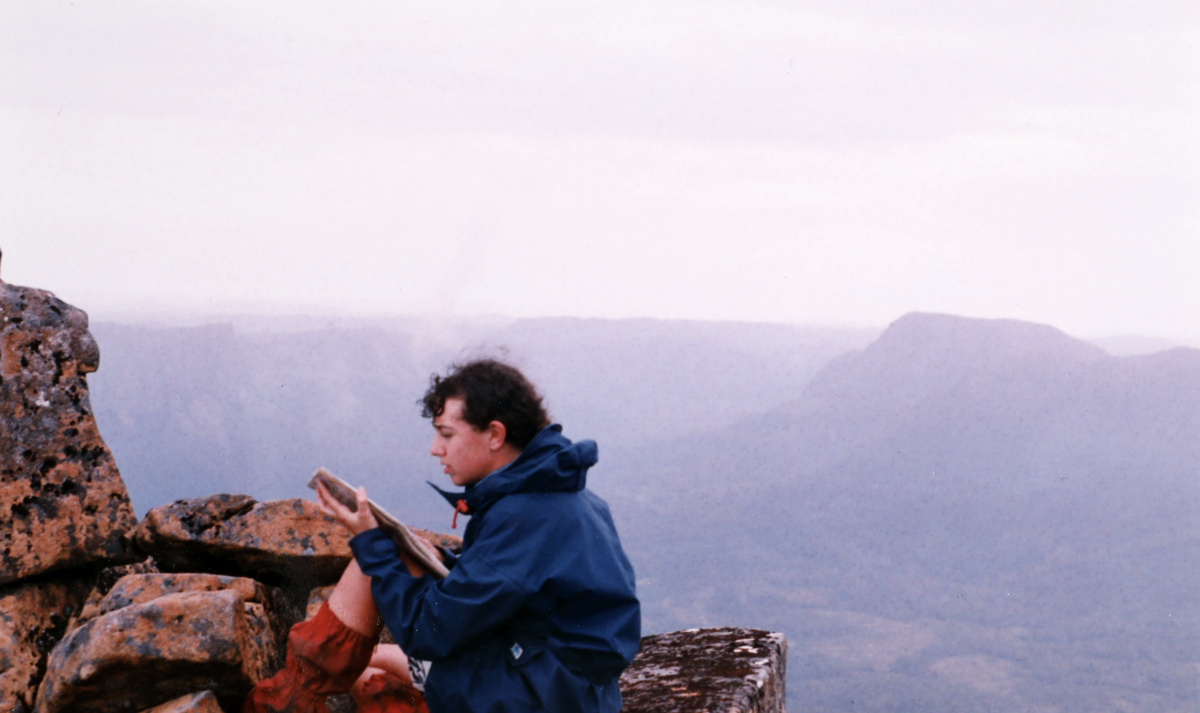
What’s your most vivid childhood memory?
Sunday lunch at my Nonno and Nonna’s. It was a ritual starting with an inspection of the garden and what was in crop, then sitting down for a lunch of penne pasta with sugo and plenty of crusty bread to wipe up the sauce, trying not to spill it on the light blue gingham table cloth followed by a salty green salad, braciole and eggplant parmigiana, homemade red wine with lemonade followed with us all cracking large walnuts before my Nonno went to his room to nap and we watched Jerry Lewis movies in the lounge.
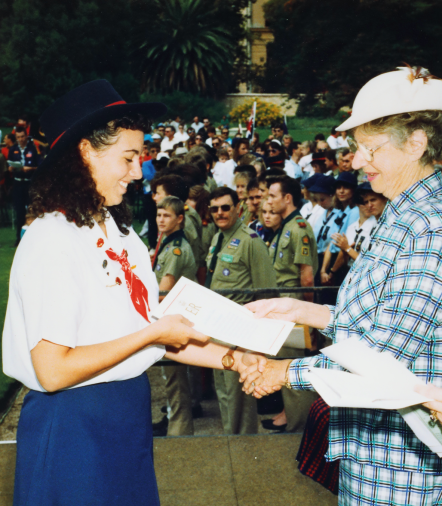
Tell us about your career
I had some stints teaching in London and Port Pirie, then I came back to metropolitan Adelaide. I enjoyed teaching, but I’ve always had the appetite to try different things. It wasn’t because I wasn’t satisfied in what I was doing, but I always thought, there’s more. I went back to study and completed a Masters – part of my studies led me to work in government. I got interested in the background of education, the legislation, policies and decision-making. I moved around in government a bit, not just in education, but into community and stakeholder engagement. I worked on projects involving youth, community and education. It was all about how government works with the community and our non-government organisations. My work involved collaborating, solving problems and working better together.
You started your own business?
I spent 13 years in government and then I got restless. I’m one of these people that if you don’t like something or you think it’s broken, you fix it. I wasn’t happy with the system I was working in and I felt constrained by how I needed to work in government. I decided to leave and see if I could do it on my own. I’ve had my consulting business, Enabling Solutions, for the past three years doing the same sort of work I was doing with the government, but I found it really lonely. It’s taken me the past six to 12 months to really work out that being a sole business owner doesn’t really suit me. I loved the autonomy, independence, and decision-making that you do but it was not altogether what I was after. So, since March my husband and I have been running a business, Allstone. It’s quite a different environment to what I’ve ever been in, but it’s enabled me to be more flexible in how I work and to do all the other things that I get a lot of satisfaction out of.
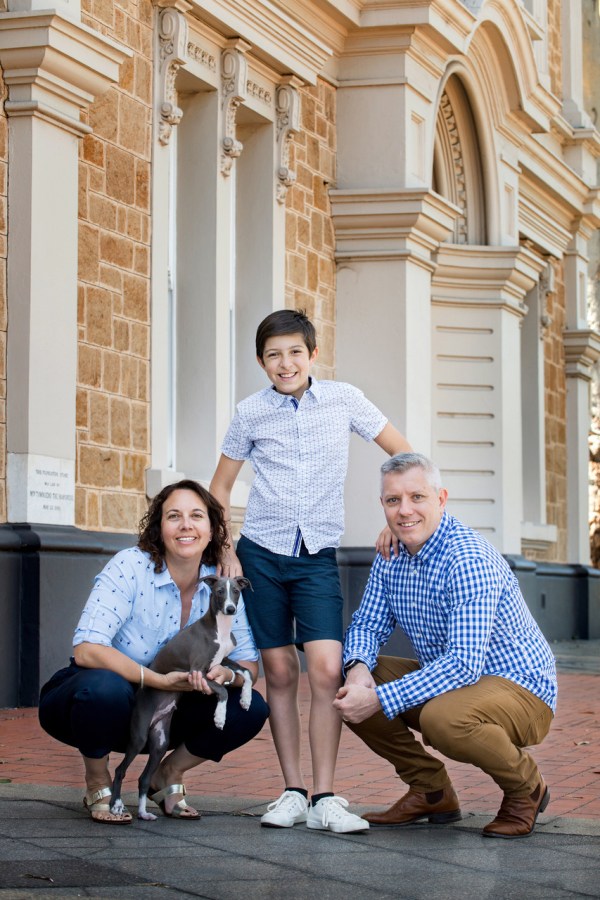
How have you continued with your causes?
My time and effort is far more valued in the volunteering and community space than it ever was in the workspace. I am president of Athletics SA and SA representative for Transcend Australia. I consider myself fortunate as the opportunities I have had have enabled me to spend more time doing the things I really love. I’ve got a lot on my plate, but I find I work better when I’m busy. I value a challenge, to feel enthusiastic and to be engaged with causes that I’m passionate about is so rewarding.
Why did you decide to run for council?
I’ve always got something to say but I’m quite happy to be proven wrong as I don’t always need to have the answer to everything. I’ve always considered myself a fairly good listener and I think that’s what’s driven me – listening to people about their problems and issues and thinking about how I can be part of the solution.
I initially ran for council in Mitcham and found that everyone had a platform. My platform was that I wanted to listen and engage, but this was not a strong platform as it was not understood and I just missed out.
My focus was on being a Board Director and I served on Touch Football Australia and Sport SA boards. When we moved to Unley and I had flexibility running my own business, I decided to have another crack at council.
I did a lot of door-knocking and a lot of people would say, “No one’s ever come to see me.” There’s power in reaching out and connecting, people feel that they matter. And that’s all anybody wants at the end of the day. Those that really loved and embraced their community had a lot to say.
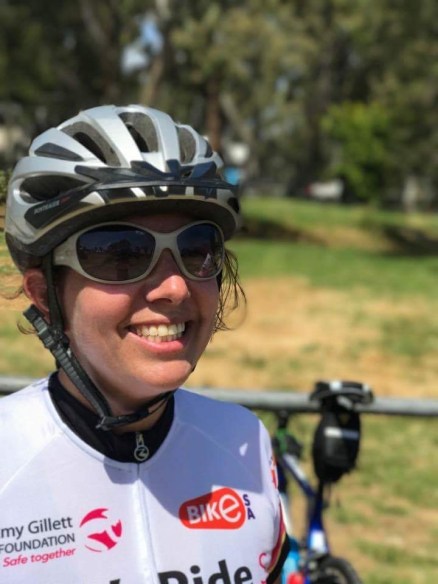
How do you compare your work on boards to working on council?
How you run meetings at council compared to boards, it’s completely different. Council meetings are a bit antiquated and heavily legislated with many different protocols. It’s really cumbersome and I think it makes us a little bit scary to the community. I don’t think you necessarily need protocols and formalities to get things done. Debate and discussion are very different in the council chambers. It’s so focused on a decision, one way or another. In the board room, it’s more about the discussion and working towards a decision. It’s taken me a while to get used to it and to play the political game: I’ve found it really frustrating as it’s not very collaborative.
What’s been your biggest challenge in life?
As a parent feeling so confused, helpless and lost when your child needs your help because they felt their body did not fit them. Reading lots to learn what you don’t know, navigating a health system, being judged, challenging others, arguing for your child’s rights, speaking up, raising awareness, helping other parents, working with the community and advocating for transgender and gender diverse young people and their families who deserve to be treated equally. It continues to be a challenge – one that I won’t give up on.
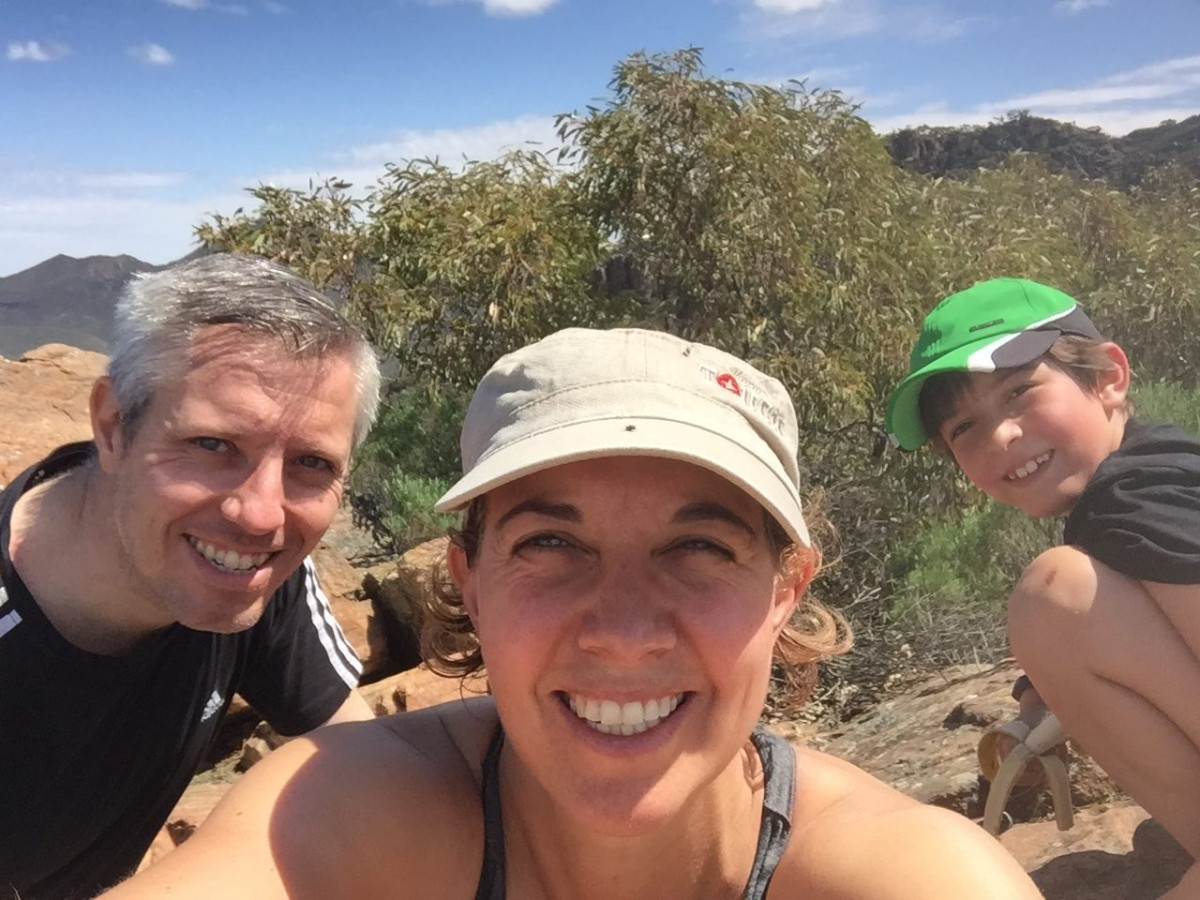
Your child Olivia is non-binary, tell us about that
Olivia started to question their gender around the age of four or five and started saying things about their body and appearance. And Olivia stopped wearing dresses.
It was the talk about Oliva’s body and words around, “I don’t think I’m a girl” that started me questioning what that meant. You go online, as you do, and that’s a dangerous place. A lot of the information that I came across stated that this was a difficult space to be in – abnormal and not natural. As a parent, I got quite concerned. We initially thought Olivia was transgender, as it described what I was hearing from Olivia in not wanting to be a girl, so the other option was being a boy. I wasn’t finding the right information, not finding the right people in this space to answer my concerns and questions, finding that the health system was not really supportive and limiting to what support they gave. It’s because of that struggle that I’m doing what I’m doing now with Transcend Australia.
Why is it so important that people facing these issues have the right connections?
Olivia’s challenges were not so big once we got the right help and you can contact the right people. It’s been really good that Olivia now has the language to express what Olivia feels. Olivia’s identity is about being non-binary – neither male nor female – which again is a concept a lot of people struggle with.
Olivia understands that Olivia’s sex is female, and that gender is a social constraint where we put ourselves in boxes that are either male or female. I think that’s why Olivia thought they must be male, but we now have the language and an understanding of gender questioning and gender neutrality.
My experiences seeing wait times get longer and the effect of not getting help on young people’s mental health, it’s so upsetting and unnecessary. Do we really need to further burden our struggling mental health system? We know that if you invest more money into the preventative, supportive ways, you need to do less at the other end which can be more damaging. My association with Transcend Australia and wanting to do more came about because I connected other families that needed help and support, and this has now turned into me wanting to help other parents.
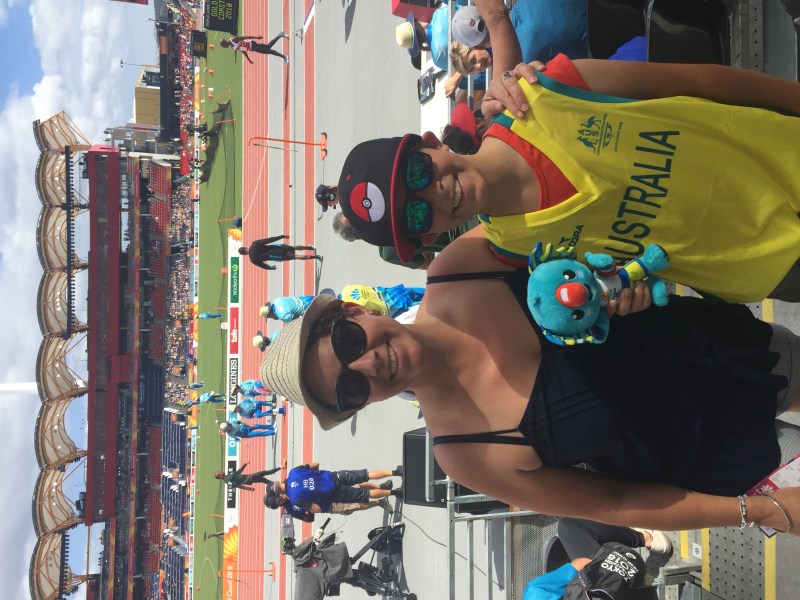
You were involved in a Four Corners story recently.
It was Olivia’s decision to do it. We said it was an opportunity to raise awareness to educate people, because most people don’t know enough about gender diversity. Olivia’s biggest frustration is that people don’t understand and the need to use gender to describes ourselves.
I don’t want people to be fearful about what they don’t know. People can be very fixed in their ways and people who think they’re different, people who see their identity differently to them find it confronting. Olivia is on hormone blockers and there are some people who don’t agree with this treatment.
I think gender identity and children is a difficult concept for some people because, if you’re an adult, you can make choices about your body, your gender and your sexuality for yourself. If you’re a child, who’s making those decisions for you? I’ve been told I’m a child abuser, there must be something wrong with me. I sort of prepared myself for the onslaught of negativity, but I wasn’t going to retaliate against it, because I know they don’t know what they don’t know.
A lot of comments came from the story. They weren’t as bad as I thought they would be. They were mostly blaming me as a parent. I think I would have been more upset if they’d been attacking Olivia. It was the comments from other families reaching out and saying thank you for being so brave to share your story, that made me realise that what we had done to raise awareness and support about gender identity was so important.
Why is it so important children are listened to early on when it comes to these issues?
Olivia has said to me: “This is who I am. No matter what you say to me, you can’t change me.” I’ve heard from other parents (about) children who try to disfigure themselves because they feel so depressed and so uncomfortable about their gender. You can’t ignore it or say, “let’s wait until they’re adults”. We can’t just let children be put in the corner and not be heard. As a society, we don’t work like that. Olivia’s mental wellbeing is the number one priority for me. I’d rather a child that has struggles and help them work through it and help educate others around them to understand it, than lose them. I think most parents would do anything for their kids; they don’t want their kids taking their own life.
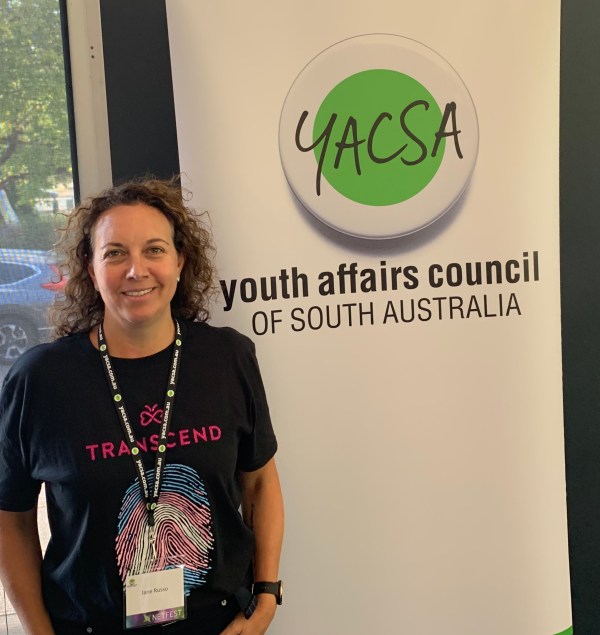
Tell us about Olivia
Olivia is a normal kid. Olivia has always been interested in lots of things. At the moment, we’ve found a real passion for basketball. Olivia is very comfortable with their identity and is happy to be the person Olivia is. When a teacher would tell boys to stand on one side and girls on the other, Olivia would always stand in the middle. Olivia would say: “I’m not either.”
Olivia’s had a few kids make comments, but Olivia has a thick skin and we’re very fortunate that we haven’t had bullying. Olivia is more frustrated with adults than kids. I really think kids are a lot more accepting of individuality and more protective of their peers.
Olivia has been doing Olivia’s own bit at Pulteney Grammar School, who have been fantastic. They’re discussing gender diversity in the classroom and asking why we gender stereotype.
It’s Olivia’s second year at Pulteney and we’ve made sure Olivia has a uniform that they are comfortable with. So that’s not a skirt, but also not the boys’ pants. Just pants. Olivia helped the school with the uniform, and has also been part of helping them develop the curriculum for the gender stereotyping sessions.
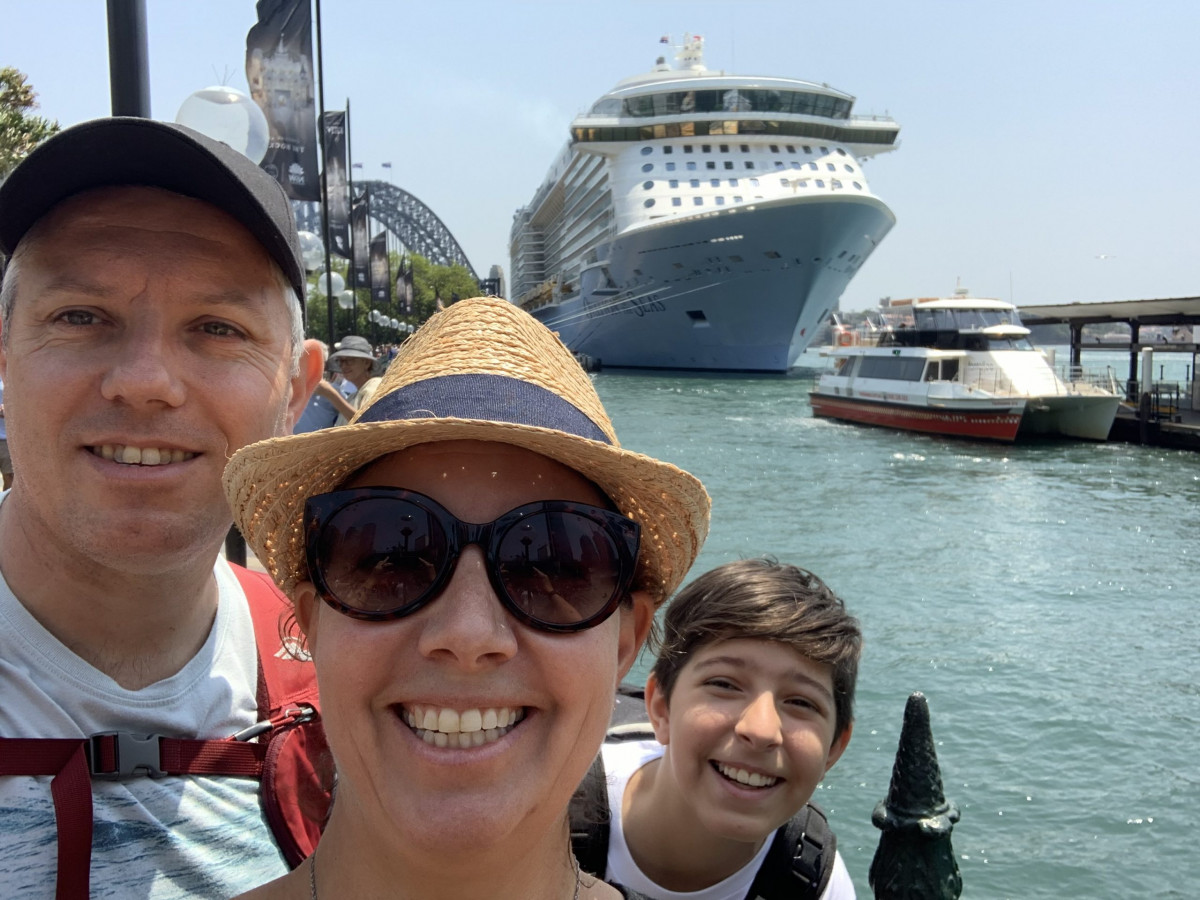
Tell us about the idea of pronouns
Language is a funny thing because a lot of languages around the world have feminine and masculine pronunciation. For Olivia, when we talk about pronouns, I have to work hard about not using “she”. Olivia doesn’t like she or he, the gender-specific pronouns. Olivia doesn’t care if you use “they” or “their”. Just call me Olivia – it’s my name. The pronouns, the gender-affirming hormones and blockers, they are instruments, they are things we use to help our young people feel comfortable and to be the person that they really are.
Do you have hope for the future?
Our children will be the ones who make this change. I think they always lead the way. As adults, we need to be there to support it.
At the moment, my focus is on funding and resources for a gender diversity clinic at the Women’s and Children’s Hospital – that’s what many of us parents are lobbying for.
Who inspires you and why?
Those who speak up and are true to their word. People such as Natasha Stott Despoja, Jacinda Ardern, Penny Wong, Rebekah Robertson, Katrine Hildyard, Angela Pippos and Bridie O’Donnell, in my opinion, have acted on what they say.
How do you describe yourself these days?
Genuine with lots to offer. Being over 40, I feel that I can say that I have lived and I don’t feel inadequate as my experiences now mean something and are valued.
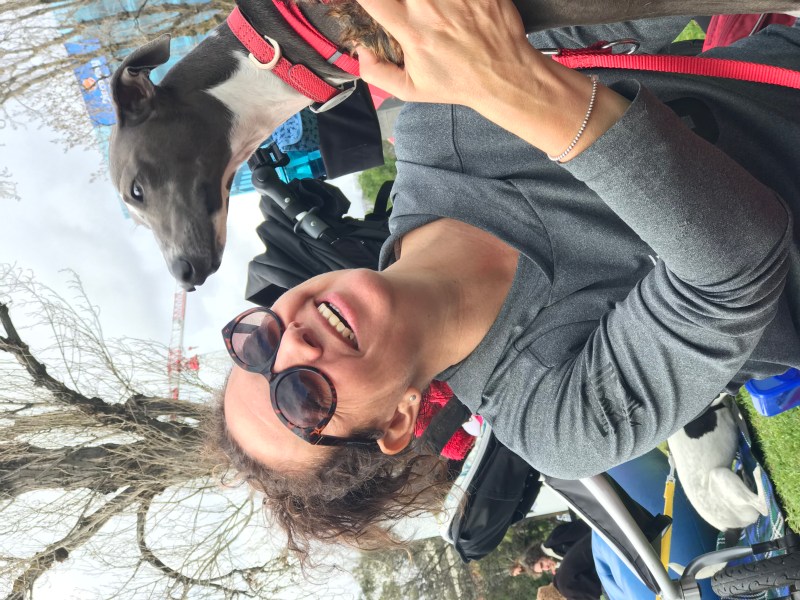
One thing we don’t know about you?
I was Triathlon SA’s 1999/2000 Triathlon Distance Championship Female 25-2. It came as a surprise to me – I received the trophy in the mail.
Just once, I wish I could… fly (or perhaps just fly an aeroplane or helicopter).
My South Australian Life is a first-person series, published each Sunday. Read our previous profiles here.



